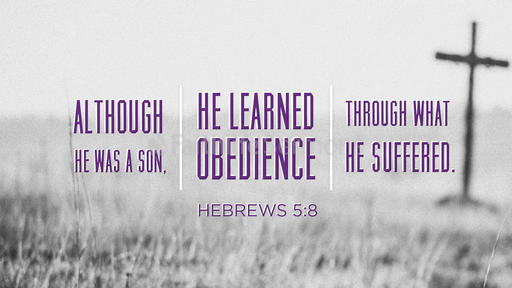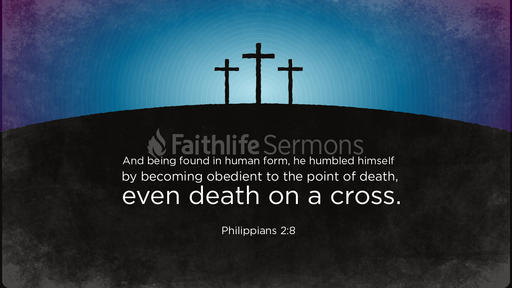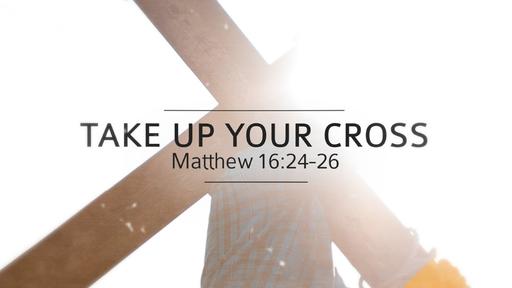Josiah and the Power of Obedience
Sermon • Submitted
0 ratings
· 83 viewsGod expects us to obey His Word...
Notes
Transcript
Josiah and the Power of Obedience
Josiah and the Power of Obedience
Say
Lord, I need revival!
Revive me!
Change me!
Strengthen me!
Refill me!
Make me mighty, in you!
I want to go deeper!
Let revival, start in me!
Text
8 Then Hilkiah the high priest said to Shaphan the scribe, “I have found the Book of the Law in the house of the Lord.” And Hilkiah gave the book to Shaphan, and he read it. 9 So Shaphan the scribe went to the king, bringing the king word, saying, “Your servants have gathered the money that was found in the house, and have delivered it into the hand of those who do the work, who oversee the house of the Lord.” 10 Then Shaphan the scribe showed the king, saying, “Hilkiah the priest has given me a book.” And Shaphan read it before the king.
11 Now it happened, when the king heard the words of the Book of the Law, that he tore his clothes. 12 Then the king commanded Hilkiah the priest, Ahikam the son of Shaphan, Achbor the son of Michaiah, Shaphan the scribe, and Asaiah a servant of the king, saying, 13 “Go, inquire of the Lord for me, for the people and for all Judah, concerning the words of this book that has been found; for great is the wrath of the Lord that is aroused against us, because our fathers have not obeyed the words of this book, to do according to all that is written concerning us.”
Intro
I’m always interested in inventions and innovation. Thomas Edison, Steve Jobs, and Henry Ford are names that are recognized as innovators.
However, most would not recognize the names Spencer Silver or Art Fry. But their invention has had as far reach as the iPhone, itself.
Spencer Silver was an engineer, working for 3M in 1968. He was trying to create super-strong adhesives for the aerospace industry.
He discovered a type of adhesive knows as ACMs. But, instead of being incredibly strong, ACMs were incredibly weak. But they had two unique features:
When removed, they left no residue on a surface.
After removed, they retained their “stickiness” and could be used again.
Five years later, Silver presented an idea for an ACM-coated bulletin board. Papers could be stuck to it without using thumbtacks or staples and could be removed without getting adhesive everywhere.
Art Fry, another 3M engineer, was familiar with Silver’s discovery. Mr. Fry sang in a church choir and constantly dealt with the problem of his paper song-page markers falling out of the song book.
So he had and idea: Why not use some of Silver’s ACM adhesive on the page markers to keep them in place? Fry then decided to present to 3M that they could put the adhesive “on a piece of paper and then we can stick it to anything.”
And, just like that, the Post-It Note was born!
Now, from one perspective, Spencer Silver’s work could be considered a total failure: it did nothing for the aerospace industry and was being forgotten.
From another point of view, though, it could be considered a stunning success: Post-It Notes are practically in every office in the world.
You know, not every so-called “failure” is quite as disastrous as it first may seem.
Today, we’re going to dig into the story of the life of a Judean king whose own story can be read in two very different ways.
Body
An Era of Revival
The Disastrous Reign of Manasseh
Manasseh had a 55-year reign and was the longest of all the kings of Israel. Usually, in Scripture, long reigns (like long lives) are a symbol of God’s blessing for living a righteous life.
But in the case of Manasseh, quite the opposite is true. He not only was Judah’s longest-reigning king but also its most wicked ruler. Under the reign of Manasseh, Judah became more wicked than the Canaanites that the Lord had destroyed when Israel conquered the Promised Land.
And this is part of the reason that during the reign of Manasseh, God proclaimed His intention to destroy the city of Jerusalem and send the people into exile.
Manasseh had set a disaster in motion.
The Dawning of Hope
It was in the midst of these problems that Manasseh’s grandson Josiah entered onto the scene. And he entered with the light of hope.
You should hear the evaluation of Josiah in 2 Kings:
2 And he did what was right in the sight of the Lord, and walked in all the ways of his father David; he did not turn aside to the right hand or to the left.
Josiah’s faithfulness was unmatched - even by David, the man after God’s own heart! Even as great of a king as David was, his life was marred by the sin with Bathsheba and the murder of her husband. With King Josiah, we hear of no such sinfulness.
It’s important to note that throughout the history of the kings of the nation, some were known as Reformer Kings. They sought to turn the nation back toward serving their God. Josiah was a Reformer King, and considered one of the greatest.
A few of the details of his reforms:
First, the list of Josiah’s reforms exceeded the list given of Manasseh’s sins. (2 Kings 23:2-25)
Second, his reforms included “the destruction of the high places.” This included the false altar at Bethel. It had stood since the time of Jeroboam I and had become the symbol of their rebellion.
Third, he would observe a national Passover at Jerusalem.
This second reform was so important because Josiah was used of God to fulfill an age-old prophecy of destruction given when the altar was build:
2 Then he cried out against the altar by the word of the Lord, and said, “O altar, altar! Thus says the Lord: ‘Behold, a child, Josiah by name, shall be born to the house of David; and on you he shall sacrifice the priests of the high places who burn incense on you, and men’s bones shall be burned on you.’ ”
He followed the prophecy to the letter. And in so doing, he reversed the rebellious years of kings past.
I’ve found that in order to really commit yourself to God and put yourself in a place where, like Josiah, you won’t turn the the left or the right for anything, it requires that you REMOVE some things that do not belong!
God Can Intervene in My Worst Circumstances
Now, it’s important to pause here and think about the spiritual distance between the reigns of Manasseh and Josiah.
No one who lived under Manasseh’s reign, with the rampant idolatry and immorality, could ever have imagined a revival quite like Josiah’s. And that’s really what it was: a revival!
Before, it would have seemed as if all hope for national restoration and return to God was dead. And yet, Josiah’s revival was greater than any the nation had ever seen.
Speaking through the prophet Isaiah, God commanded His people:
18 “Do not remember the former things,
Nor consider the things of old.
19 Behold, I will do a new thing,
Now it shall spring forth;
Shall you not know it?
I will even make a road in the wilderness
And rivers in the desert.
You know, I can imagine that there had been some around who were seeing all of the evil of the nation and thinking, “Times are bad right now… and boy, we really had a revival back then. That was the way things should always be, back then. If only we had something like we did, back then.”
But what they were not expecting is the much greater revival that would be unfolding before their very eyes! And it was taking place, coming out of a time of struggle and evil!
And I just think today, that perhaps we speak of revival in the past-tense too much!
I think that maybe, while remembrance and reverence of former revival is necessary, readiness and willingness and watchfulness for OUR revival today is even MORE VITAL!
Because scripture is very clear that the latter rain will be GREATER than the former!
I think that one of our greatest battles today is the battle against mediocrity!
And by mediocrity, I mean: too much celebration over history, too much joy over old experiences while there is not enough hunger for fresh fire, or to produce a future.
We need to really get excited about what God is saying in Isaiah, here. So I’m going to read it again:
18 “Do not remember the former things,
Nor consider the things of old.
19 Behold, I will do a new thing,
Now it shall spring forth;
Shall you not know it?
I will even make a road in the wilderness
And rivers in the desert.
God wants to do a NEW THING!!!
And He wants to do it in us!
So I want to encourage some Apostolics: get a fire in your belly for what God is doing! Get a fire in your belly about your worship! Get a fire in your belly about your expectation of His new things!
A National Tragedy
The Death of Josiah
And so here we are, at a beautiful place in the history of the nation of Israel.
It’s fun to speculate about the feeling in the towns, streets, neighborhoods. It surely could only be described as joyful, hopeful, light, energetic! True change had come at last; the sins of past generations had finally been dealt with.
But in the midst of this revival, the conclusion of the story of Josiah’s reign comes like a thunderclap.
In one brief and brisk verse, the author of Kings tells us Josiah went to war and was killed:
29 In his days Pharaoh Necho king of Egypt went to the aid of the king of Assyria, to the River Euphrates; and King Josiah went against him. And Pharaoh Necho killed him at Megiddo when he confronted him.
And biblical scholars are still puzzled today by Josiah’s actions in this matter. It doesn’t appear that Pharaoh Necho was threatening Judah. So why did Josiah go out out meet him in battle?
And his actions aren’t revealing that he was being a fool or being rebellious against God’s Word. It appears Josiah was simply doing what he felt was right to protect his kingdom, and he died for his efforts.
The Dissipation of the Revival
Unfortunately, Josiah’s untimely and unexplained death quickly killed the revival’s momentum.
His son was removed from royal power. His other son, Jehoiakim, became an evil king who “did that which was evil in the sight of the Lord....”
Essentially, all the good Josiah had accomplished was undone by Jehoiakim.
Sometimes Good People Face Tragedy
All this stemmed from an untimely death.
You know, the difficult reality is that bad things do happen to good people for no apparent reason.
Even though we know such suffering is ultimately the result of sin’s corruption of God’s perfect world, that doesn’t always help our grief when we see those we love caught up in pain and heartache.
It’s these moments that can push our faith to its breaking point. If we are honest, everyone here, at one point or another, have dealt with what C.S. Lewis called “the problem of pain.”
But… if we continue in our honesty, we would also be forced to admit the truth of what else Lewis said of pain: “I have seen great beauty of spirit in some who were great sufferers. I have seen men… grow better no worse with advancing years, and I have seen the last illness produce treasures of fortitude and meekness from most unpromising subjects.”
The deepest mystery of pain is not in the suffering, but in the beauty pain’s endurance can produce!
I wonder if I could get a witness or two who would say that you’ve been through some painful things in life, but you’ve come out a better person??? Somebody that the suffering and the pain actually benefitted you???
And if you had listened to the whispers of satan at the time, telling you that your end is near and your time is up and you had finally failed, you would have been brought low… but God carried you, and built you up! And you’re here today! Stronger! Wiser! Better!
I just feel like taking a moment and letting God have some adoration!
The Many Faces of Faithful Obedience
To Obey Is Better Than to Succeed
Now, Josiah’s death, even today, calls us to question the value of his reforms.
He was definitely the greatest reformer the nation had ever known, restoring the rule of God among the people of God.
But SO WHAT? When he died, his sons went right back to following the evil ways of their grandfather Manasseh. In fact, Josiah’s reforms lasted so short a time it’s almost difficult to even describe them to be a “success.” It might be better categorized as a failure.
And this all becomes even more certain when we consider the prophecy of Huldah to Josiah, before he ever launched any of his reforms:
16 “Thus says the Lord: ‘Behold, I will bring calamity on this place and on its inhabitants—all the words of the book which the king of Judah has read—17 because they have forsaken Me and burned incense to other gods, that they might provoke Me to anger with all the works of their hands. Therefore My wrath shall be aroused against this place and shall not be quenched.’ ” ’
All of those reforms were not enough to reverse God’s decision to destroy Jerusalem and send Judah into exile! And Josiah knew it. It had been prophesied.
So why did he exert the energy and do any sort of reform that would be useless? What was the point?
Quite simply… it was because doing the right thing is more important than being successful.
Once Josiah learned from God’s Word what obedience to the covenant required, the outcome no longer mattered. He wished to be obedient to God!
It’s so very easy for us to fall into the trap of serving God in order to get something from Him.
The Aftereffects of Josiah’s Revival
Now, before we assign Josiah’s reign a complete failure, we should consider something from the book of Jeremiah that was taken from the time after the city had fallen to the Babylonians.
Of course, it was a time of tremendous upheaval and despair.
Just a few weeks after he was appointed, the Babylonian governor Gedaliah was assassinated by a man named Ishmael. The day after, a group of eighty pilgrims arrived in Jerusalem to mourn the loss of the Temple. Ishmael, fearing discovery of his crime, murdered all of them in cold blood and buried them in a mass grave.
(This can all be found in Jeremiah 41, by the way.)
However, what gets lost in all the horror and the senseless bloodshed is the brief detail given that these pilgrims came “from Shechem, from Shiloh, and from Samaria” (verse 5), all cities located in the region of the long-overthrown Norther Kingdom.
Ever since the days of Jeroboam, Israel had been loaded down with idolatry and false worship. There were no righteous northern kings; every last one of them was wicked and evil.
HOWEVER, the only explanation for these pilgrims appearing in scripture from the northern cities, is that because of Josiah’s strong reformation decades ago, and because of his destruction of the shrine at Bethel, it all brought a revival to the remnant of people still living there.
No, Josiah’s reforms didn’t last in Jerusalem, but they had far-reaching effects! And they brought revival to Shechem, Shiloh, and Samaria!!!
We Must Remain Faithful in the Face of Failure
SO - was Josiah’s reform a failure?
The answer, it seems, is not clear-cut. Obviously, Josiah’s reforms did not rescue the city of Jerusalem from destruction - but they did revive the worship of God in the northern territory long overrun by idolatrous worship!
Josiah’s reforms may not have had the lasting effect he hoped for, but they did have a lasting effect!
And this points us all, again, to the importance of faithfulness, even in the face of apparent failure. Just because we do not achieve our purposes or goals does not mean our obedience and faithfulness do not achieve any purpose or goal.
In fact, obedience to God is never about achieving our purposes at all. It should always be focused on achieving His purpose!
Conclusion
Josiah didn’t simply obey God because He hoped to get God to bring him success and prosperity. Josiah obeyed God because God is to be obeyed!
Too often, we treat obedience and faithfulness as a means to an end - success, happiness, fulfillment, contentment - when in reality, obedience and faithfulness must be seen as ends in and of themselves.
Otherwise, obedience simply becomes another tool in the sinful human quest to control God and make Him do what we want.
But what Scripture speaks to us is this:
God is God.
We are not.
And we are His people, the sheep of His pasture.
3 Know that the Lord, He is God;
It is He who has made us, and not we ourselves;
We are His people and the sheep of His pasture.
ADVERTISEMENT
Related Media
See moreRelated Sermons
See more

NuevaEs Bilingual Church • 52 views • 32:03


Copeland Christian Church • 16 views • 44:17




